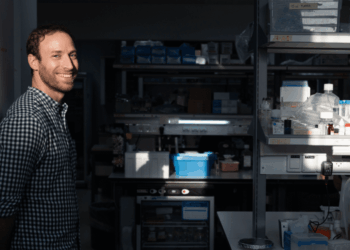Click above to watch. Please note there were some connection issues during the introduction and the audio may sound distorted. This only affects the first couple of minutes and the main presentations are not impacted.
On 13 May 2025, the EACR hosted a webinar in collaboration with Bio-Rad, one of our valued EACR Industry Partners. We were delighted to welcome Dr. Aliki Ntzifa, Postdoctoral Researcher at the National and Kapodistrian University of Athens. In her talk, Dr. Ntzifa presented results from the analysis of paired CTC-derived genomic DNA and circulating tumor DNA of metastatic breast cancer patients for the detection of ESR1 mutations using droplet digital PCR technology.
Thanks to the Dr. Ntzifa and Bio-Rad, we are able to provide free on-demand access to the full webinar recording, which can be found above.
Talk abstract
Over the last decade, great advancements have been made in the field of liquid biopsy through extensive research and the development of new technologies that facilitate the use of liquid biopsy for cancer patients. Liquid biopsy has significantly altered cancer treatment by providing clinicians with powerful and immediate information about therapeutic decisions. In metastatic breast cancer, plasma cell-free DNA analysis to track estrogen receptor 1 (ESR1) mutations is highly beneficial for the identification of tumor molecular dynamics and the improvement of personalized treatments. Lately, few but still important studies have shown the clinical significance of combining the information derived from different LB analytes in various types of cancer.
In this webinar, Dr. Aliki Ntzifa will present results from the analysis of paired CTC-derived genomic DNA and circulating tumor DNA of metastatic breast cancer patients for the detection of ESR1 mutations using droplet digital PCR technology. Direct comparison of paired samples revealed that the ESR1 mutation rate was higher in CTC-derived gDNA than in plasma-cfDNA samples. Overall, the findings from this study strongly indicate that complementary information for ESR1 status of plasma-cfDNA and CTC-derived gDNA could improve therapy selection.
Speakers
Dr. Aliki Ntzifa, Postdoctoral Researcher, National and Kapodistrian University of Athens

Dr. Aliki Ntzifa is a postdoctoral researcher at the Analysis of Circulating Tumor Cells Laboratory (ACTC Lab), Department of Chemistry, National and Kapodistrian University of Athens, Greece. Her research focuses on Liquid Biopsy, specializing in the development and standardization of assays for analyzing circulating tumor cells and circulating tumor DNA in various cancers. During her Ph.D., she worked on detecting and characterizing CTCs, gene expression analysis, DNA mutations and methylation in NSCLC patients. As a postdoctoral researcher, she continues her work on liquid biopsy analysis and manages the quality management system and accreditation of the ACTC Lab based on ISO 15189 standards.
Want more videos?
EACR members get exclusive access to a library of on-demand videos, from talks delivered at previous virtual conferences to webinars with leading authors and industry experts. Explore EACR membership today.








